National Tourism Dialogue Highlights Need for Identifying Sectoral Problems and Finding Strategic SolutionsMonday, May 26th, 2025
The National Tourism Dialogue was successfully held on May 26, 2025 at the Office of the Prime Minister and Council of Ministers in Singha Durbar . The high-level program was jointly organized by the Ministry of Culture, Tourism and Civil Aviation and the Nepal Tourism Board in the special presence of the Right Honourable Prime Minister KP Sharma Oli.
The dialogue focused on the need for coordinated and integrated efforts to identify key challenges in Nepal’s tourism sector and to formulate effective, long-term solutions.
In his keynote address, Prime Minister Oli acknowledged that while Nepal has made efforts in the past to develop its tourism sector, much more remains to be done to meet current demands. “It is not that no work has been done, but there is still a great deal to accomplish. We must act,” he remarked. He emphasized Nepal’s growing connectivity and added, “Nepal is no longer remote—road networks have reached even the once-isolated villages.”
The Prime Minister further stressed the need to eliminate administrative hurdles in tourism development, promotion, and publicity. “The restructuring of Nepal Airlines Corporation is necessary, and the government will take responsibility for it. Our systems must facilitate tourists, not create obstacles,” he added.
Hon. Minister for Culture, Tourism and Civil Aviation, Mr. Badri Prasad Pandey, called for a targeted strategy to address key issues in tourism development. “Tourism is the backbone of Nepal’s economic prosperity. While both government and private sectors have initiated efforts, challenges such as manpower shortages, weak policy implementation, and fragmented investments continue to hinder growth,” he said.
Nepal Tourism Board CEO Mr. Deepak Raj Joshi presented a working paper titled “Uncovering Nepal’s Tourism Potential”, identifying major policy and legal bottlenecks, and outlining strategies to tap large markets such as China and India. He emphasized Nepal’s unique appeal as a nature- and culture-based destination.
Seven federal ministers, including Minister Pandey, participated in the event. Hon. Minister for Information and Communication Technology, Mr. Prithvi Subba Gurung, emphasized the need to improve air connectivity and lift restrictions on foreign airlines. Hon. Home Minister Ramesh Lekhak prioritized peace, security, and border safety as enablers of tourism.
Hon. Labour Minister Mr. Sharad Singh Bhandari affirmed the government’s commitment to supporting the private sector in tourism-related activities. Hon. Foreign Minister Dr. Arzu Rana Deuba shared updates on tourism diplomacy and foreign investment, noting that a comprehensive tourism master plan covering all seven provinces is necessary for tourism promotions.
Hon. Minister for Physical Infrastructure and Transport, Devendra Dahal, shared that improvements in road infrastructure and the development of tourism-related facilities would be prioritized. Hon. Minister for Forests and Environment, Mr. Ain Bahadur Shahi, said that efforts are being made to remove legal obstacles and promote eco-tourism through national parks and protected areas.
Provincial tourism ministers from Gandaki, Koshi, and Lumbini also voiced their concerns and recommendations. Hon. Mitra Lal Basyal (Gandaki Province) called for clarity in revenue-sharing mechanisms and urged decentralization of company registration and rescue operations. Hon. Sadananda Mandal (Koshi Province) stressed the need for inter-provincial air connectivity, and Hon. Prachanda Bikram Neupane (Lumbini Province) highlighted the importance of improving border infrastructure and streamlining policy implementation.
Mr. Sushil Gyawali, CEO of the Investment Board Nepal, announced plans for a Pokhara–Muktinath cable car project but noted limited progress in air service expansion. Chief Secretary to the Government of Nepal, Mr. Ek Narayan Aryal, reaffirmed efforts to reduce procedural delays and proposed declaring at least one flagship destination in each province.
The Prime Minister’s Economic Advisor, Dr. Yubaraj Khatiwada, emphasized the strategic value of road networks, particularly in the Terai region, where large populations and untapped tourism potential exist.
The private sector also participated actively, offering practical reform suggestions. Mr. Kumarmani Thapaliya, President of the Nepal Association of Tour and Travel Agents (NATTA), advocated for VAT exemptions on tourism services, permanent construction of a tourist bus park, and more flexible policies on aircraft leasing and acquisition.
President of the Trekking Agencies’ Association of Nepal (TAAN), Mr. Sagar Pandey, emphasized the need to initiate efforts to open the Korala border point and to strengthen Nepal Airlines Corporation.
President of Hotel Association Nepal (HAN), Mr. Binayak Shah, mentioned that 26 five-star hotels are currently in operation in Nepal and that globally renowned hotel chains have already entered the Nepali market. However, he highlighted the necessity of monitoring compliance with government-prescribed standards. He further pointed out that as tourists are increasingly seeking eco-tourism experiences, hotels should shift toward electric vehicles and electric kitchens, and that the shortage of skilled human resources must be addressed.
President of the Airlines Operators Association of Nepal, Mr. Manoj Karki, stated that improving transportation—particularly air and road connectivity—is essential for tourism development. He also emphasized the need to strengthen the national flag carrier, Nepal Airlines.
President of the Nepal Mountaineering Association (NMA), Mr. Nima Nuru Sherpa, expressed concern over the high climbing permit fees. He underscored the importance of establishing a one-door system for mountaineering services and called for the preparation of a peak profile database to support the sector.
President of the Federation of Nepalese Chambers of Commerce and Industry (FNCCI), Mr. Chandra Dhakal, noted challenges at border points, obstacles in cash transactions, and a rising unemployment rate despite a shortage of skilled labor. He stressed the need for the government to create a favorable policy environment.
Former Secretary of Tourism, Mr. Dipendra Purush Dhakal, emphasized the urgent need to remove Nepal’s aviation sector from the European Union’s blacklist. He also called for improvements in air service quality and the strengthening of Nepal Airlines Corporation.
Mr. Rishi Bhandari, Executive Committee Member of the Nepal Tourism Board representing the private sector, stressed the importance of comprehensive reforms in the mountaineering and broader tourism sector, urging collaboration and support from all stakeholders to achieve lasting progress.
Nepal Tourism Board remains committed to working in close partnership with federal and provincial governments, private sector stakeholders, and development partners to realize a more competitive, inclusive, and sustainable tourism industry in Nepal.
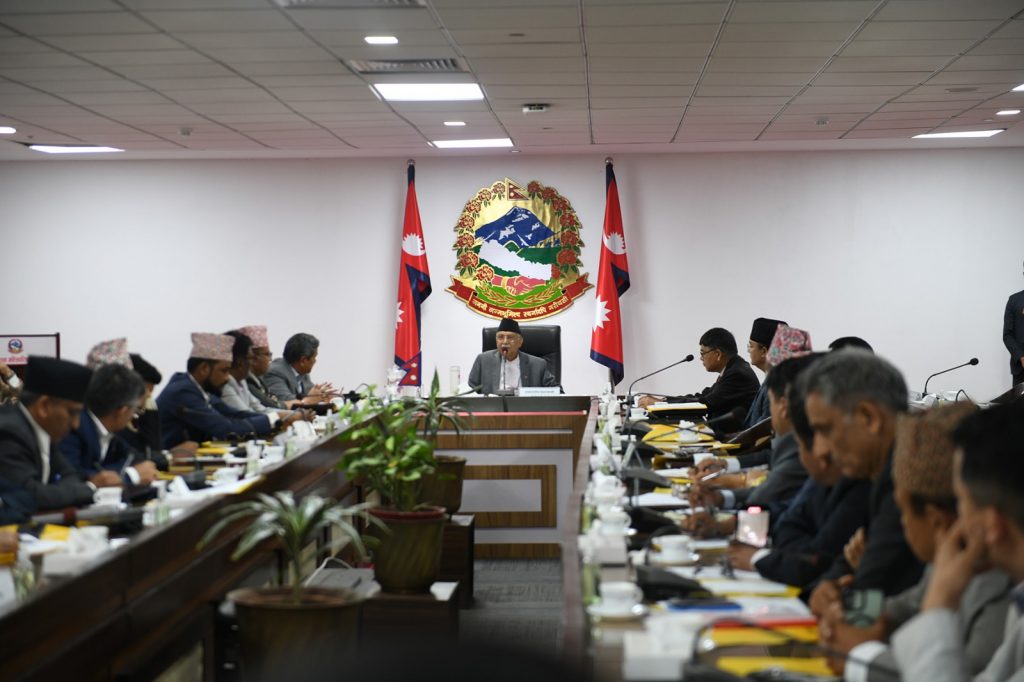
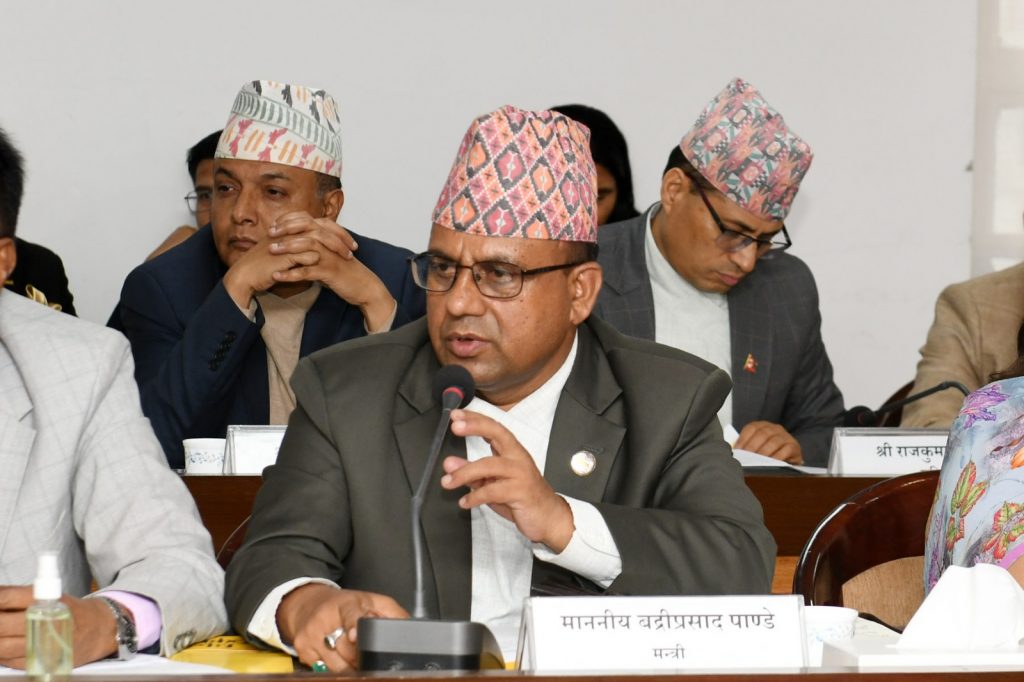
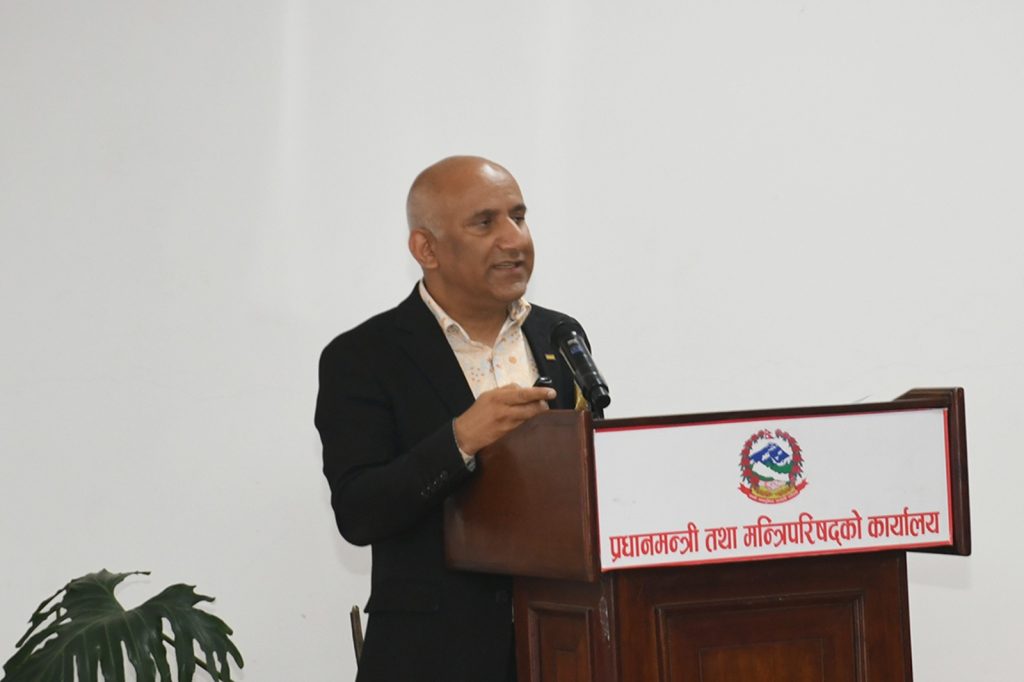
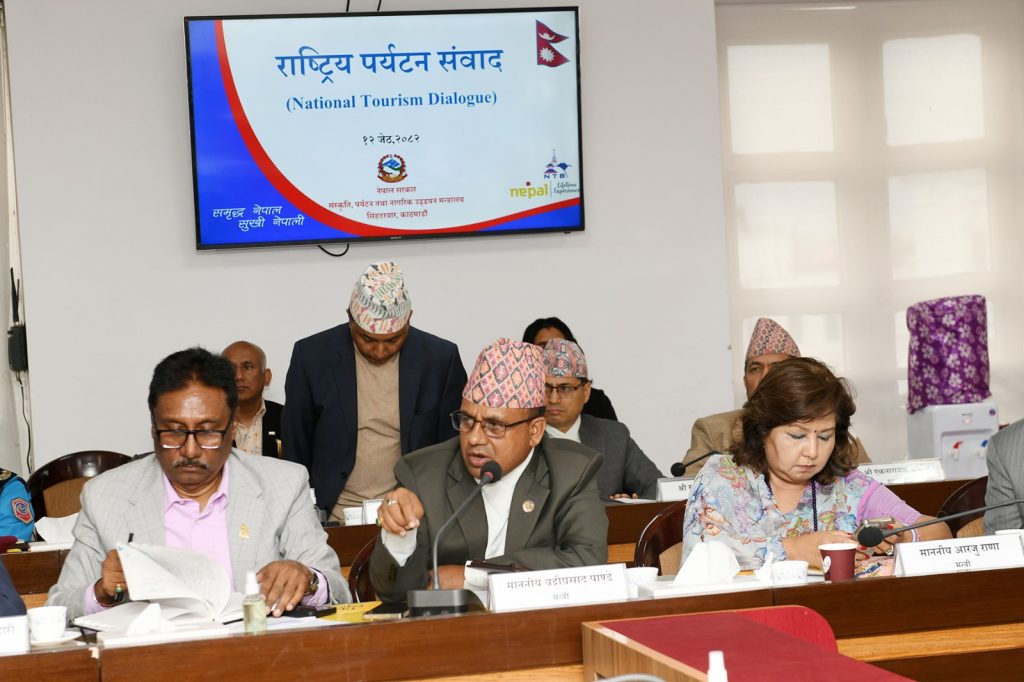
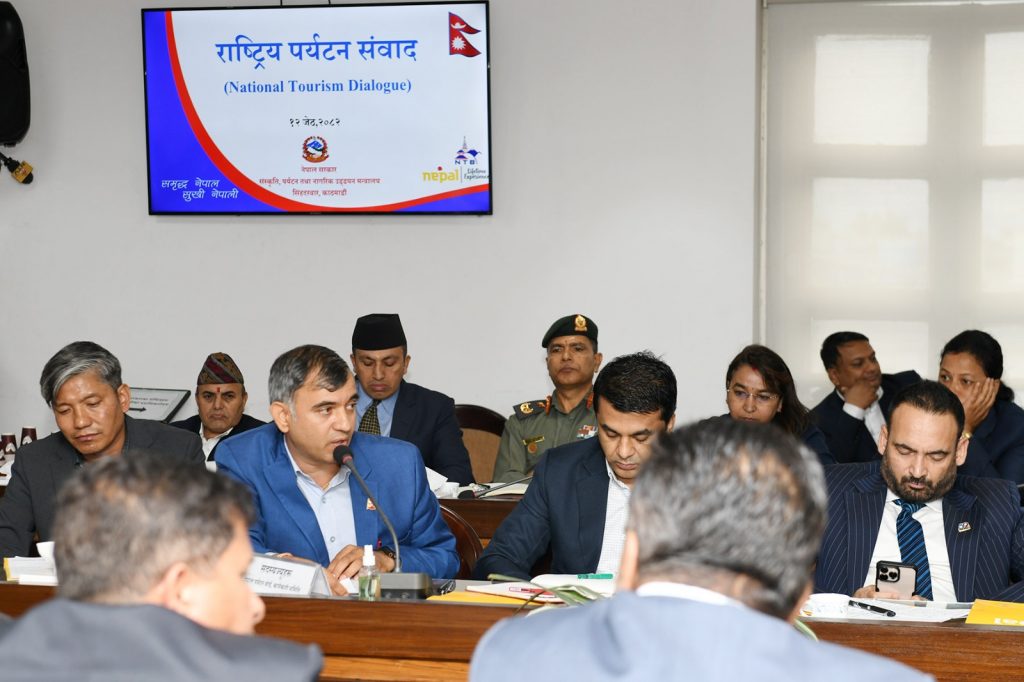
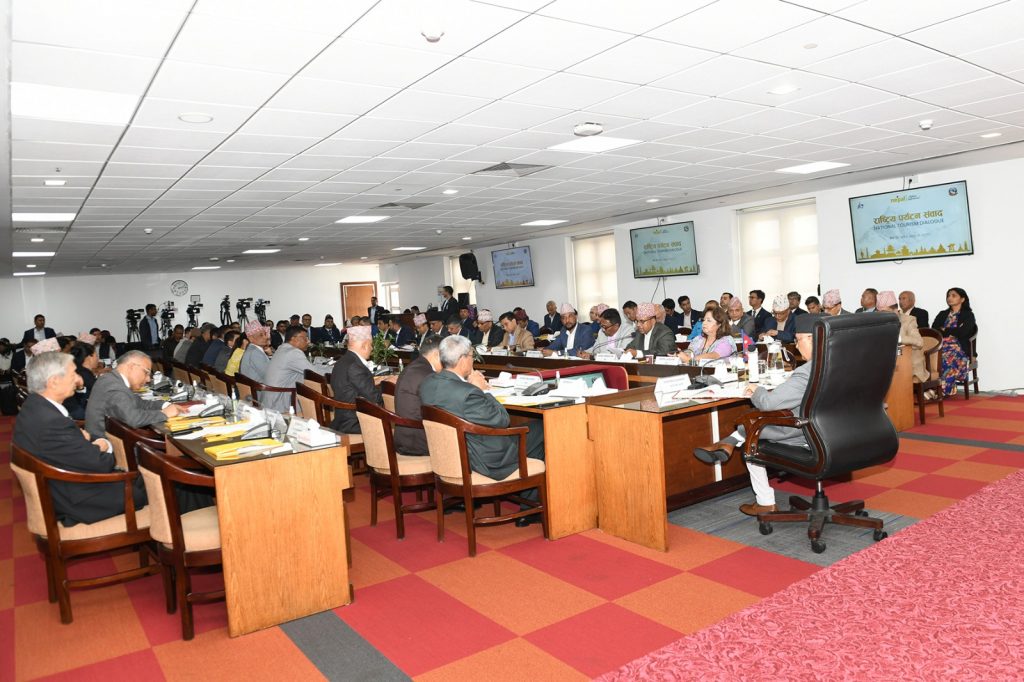
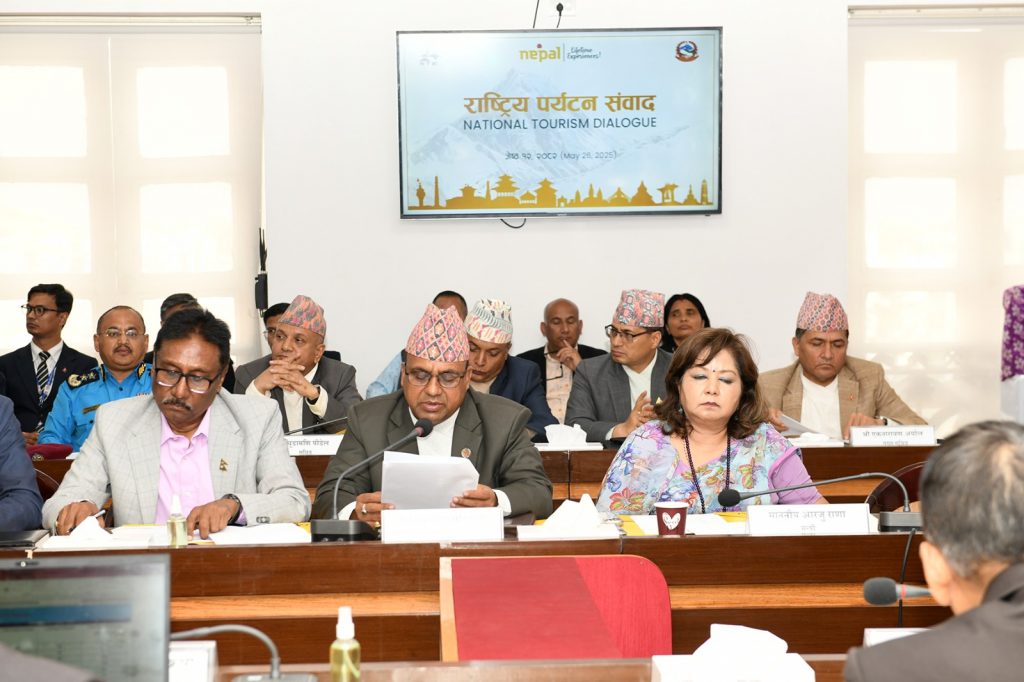
Download
Photos / Maps / Brochure ...- • CustomGallery
- • Visa Recommendation
- • Protocol
- • NTB bylaws and procedure
- • Enlistment Files
- • Placemat Designs
- • COVID-19 Safety & Hygiene Protocol for Tourism Industry
- • Forms
- • Curriculum & References
- • Booklets / Brochures
- • Logo
- • Map
- • Mountaineering in Nepal
- • Multimedia
- • Nepal Tourism Statistics
- • NTB Budget
- • Photos
- • Presentation / Documentaries / Montage
